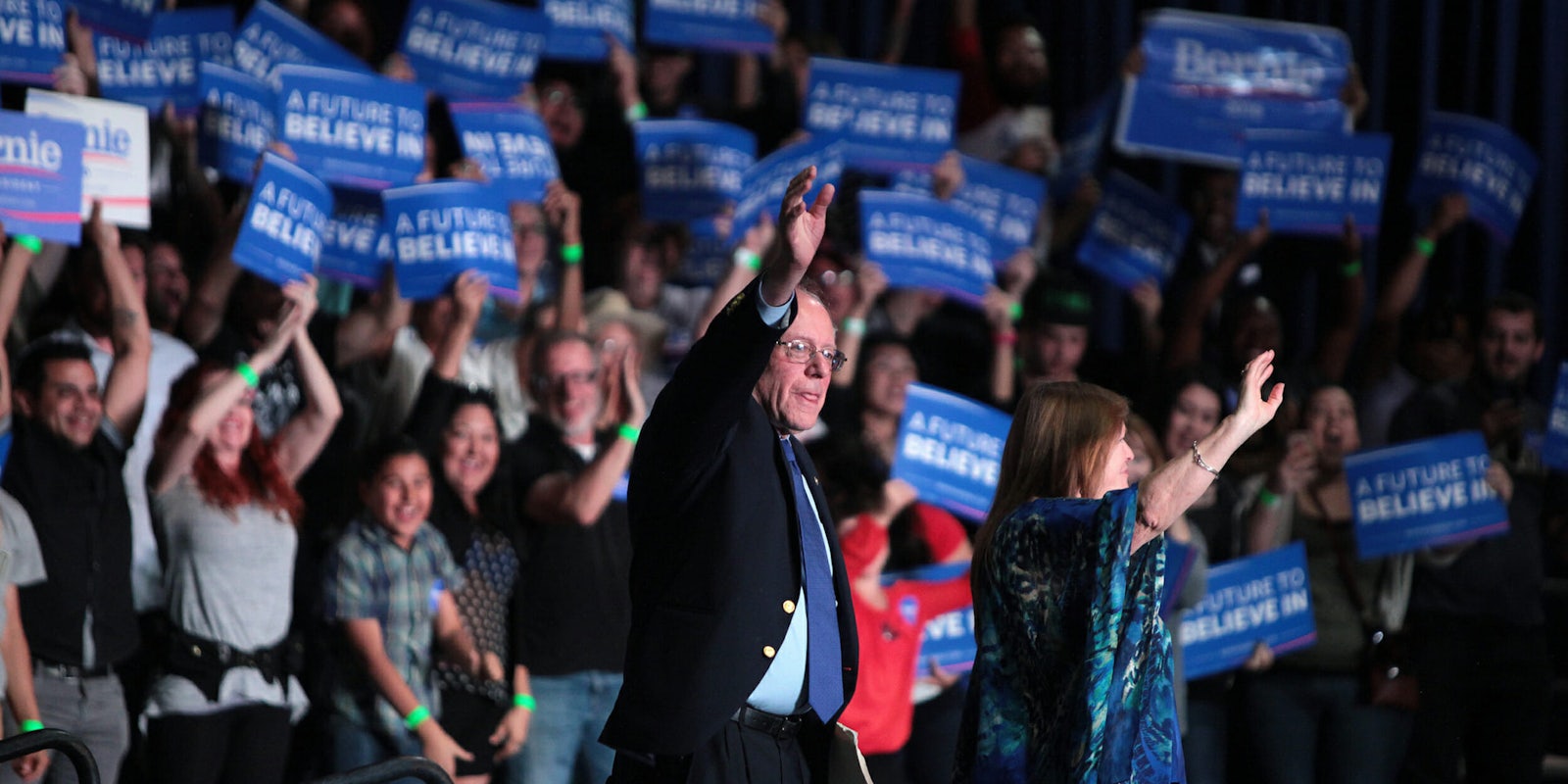Sen. Bernie Sanders (I-Vt.) is expected to introduce a single-payer healthcare bill on Wednesday that firmly positions Democrats for the 2018 and 2020 elections—even if it stands little chance of passing.
Sanders’ bill comes as an increasing number of high-profile Democrats continue to raise their support for single-payer healthcare, or basic healthcare that is guaranteed to all citizens through the use of taxes. The legislation comes in light of uncertainty surrounding the Affordable Care Act, former President Barack Obama’s healthcare law that continues to be in the crosshairs of congressional Republicans and President Donald Trump.
The bill is quickly racking up a slate of well-known co-sponsors: Sens. Kamala Harris (D-Calif.), Elizabeth Warren (D-Mass.), Jeff Merkley (D-Ore.), Kirsten Gillibrand (D-N.Y.), and Cory Booker (D-N.J.), are all reportedly backing Sanders’ bill.
Harris, Warren, Booker, and Sanders have all been rumored as possible candidates to run against Trump in 2020, and that is no coincidence.
As support for the Affordable Care Act (often known as Obamacare) continues to climb in the face of Republican efforts to repeal it, Democrats are seizing the opportunity to go even further than Obama’s signature domestic policy—by providing healthcare to everyone in the country.
Several other major countries have implemented similar progressive healthcare, including the United Kingdom, Canada, Brazil, Japan, and China.
With a Republican-controlled Senate and House of Representatives, it is unlikely Sanders’ universal healthcare bill heads anywhere close to Trump’s desk. However, its introduction shows that many of the party’s most prominent figures appear to be ready to use it as a campaign topic when it comes to 2018, when Democrats have a chance to control Congress, and 2020, when they may be able to use that hypothetical majority to create laws with a Democratic president.
In other words, any candidate thinking of running for president in 2020 that doesn’t back Sanders’ bill is going to have to explain why they didn’t.
Those hopefuls seem to have the backing of American citizens. A poll by the Pew Research Center in January showed that 60 percent of Americans thought the government had a responsibility to provide healthcare coverage for everyone, a jump from only 51 percent the year before.


